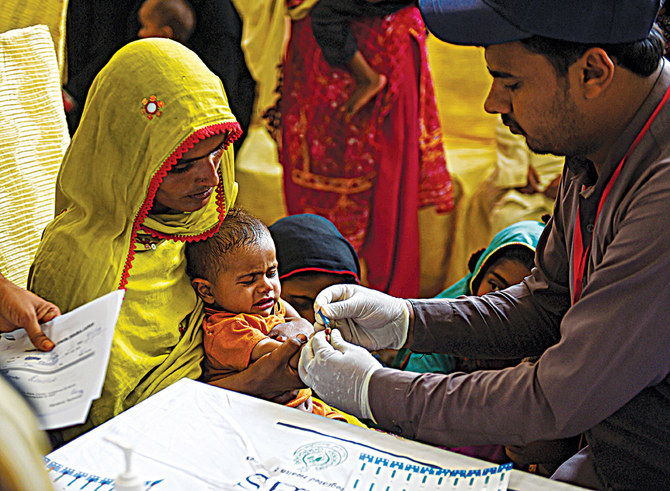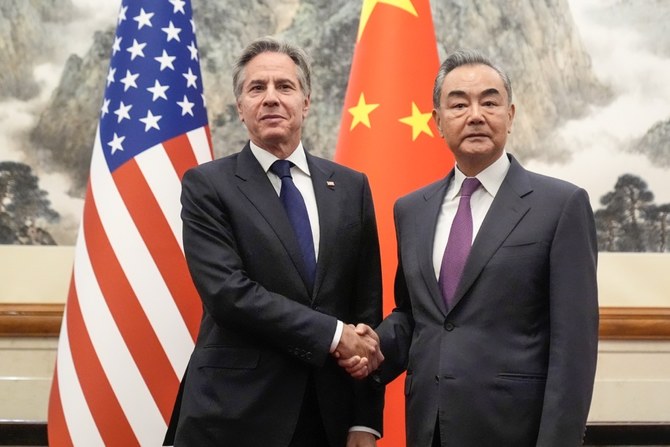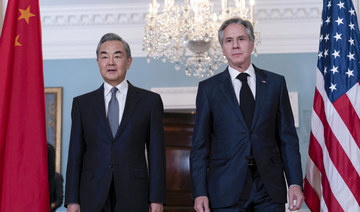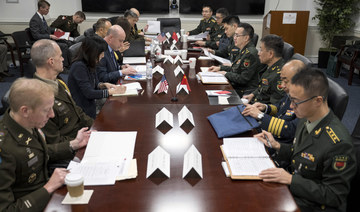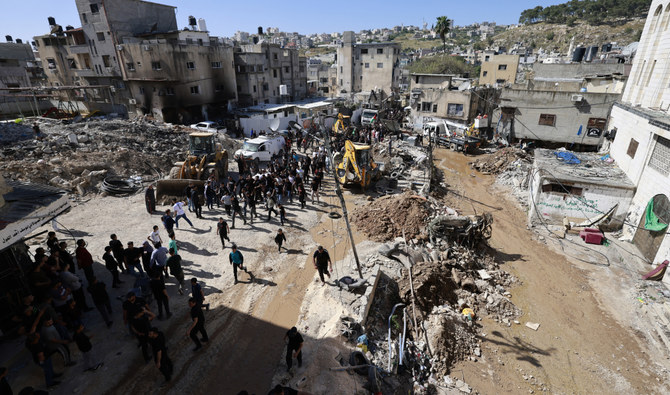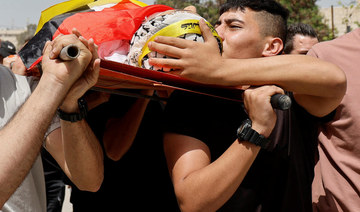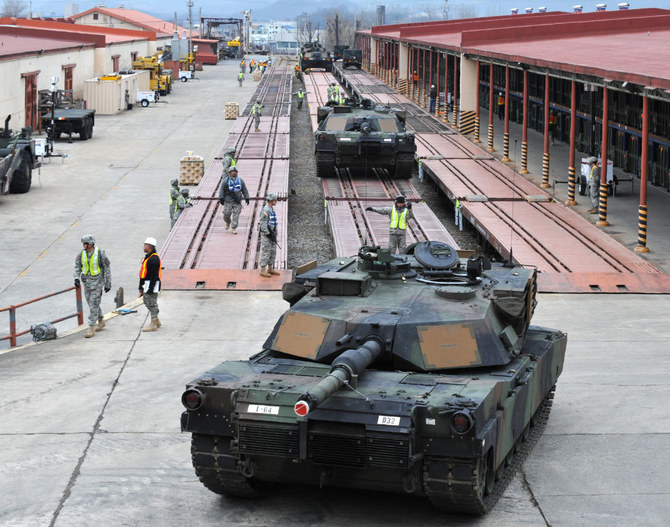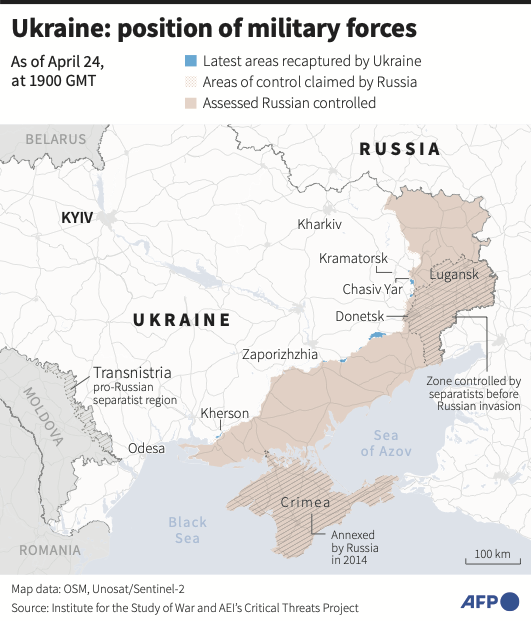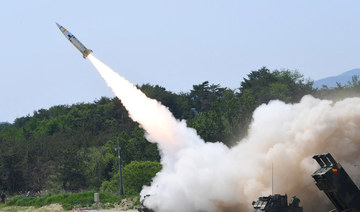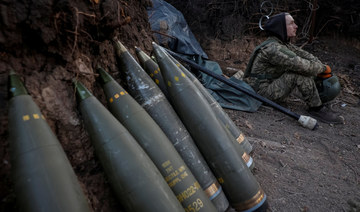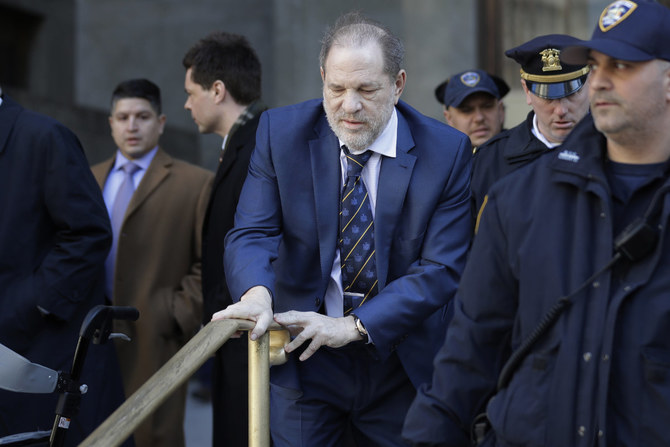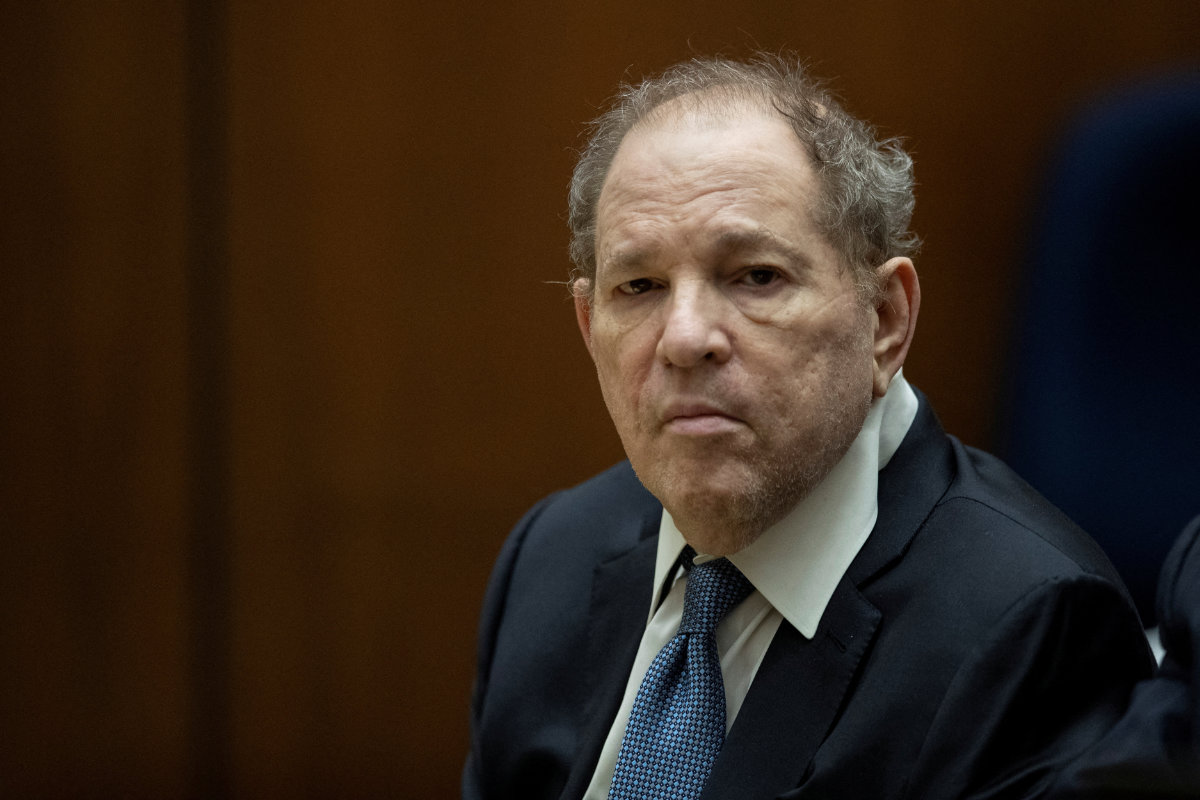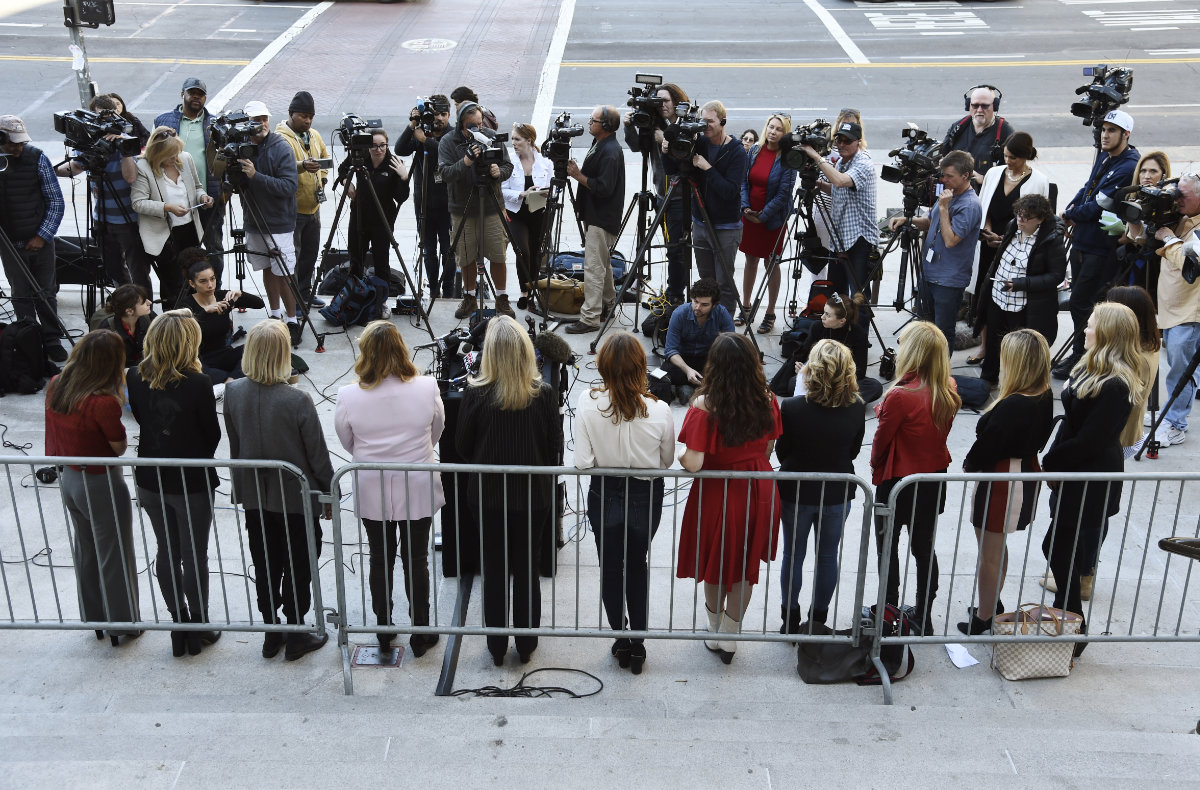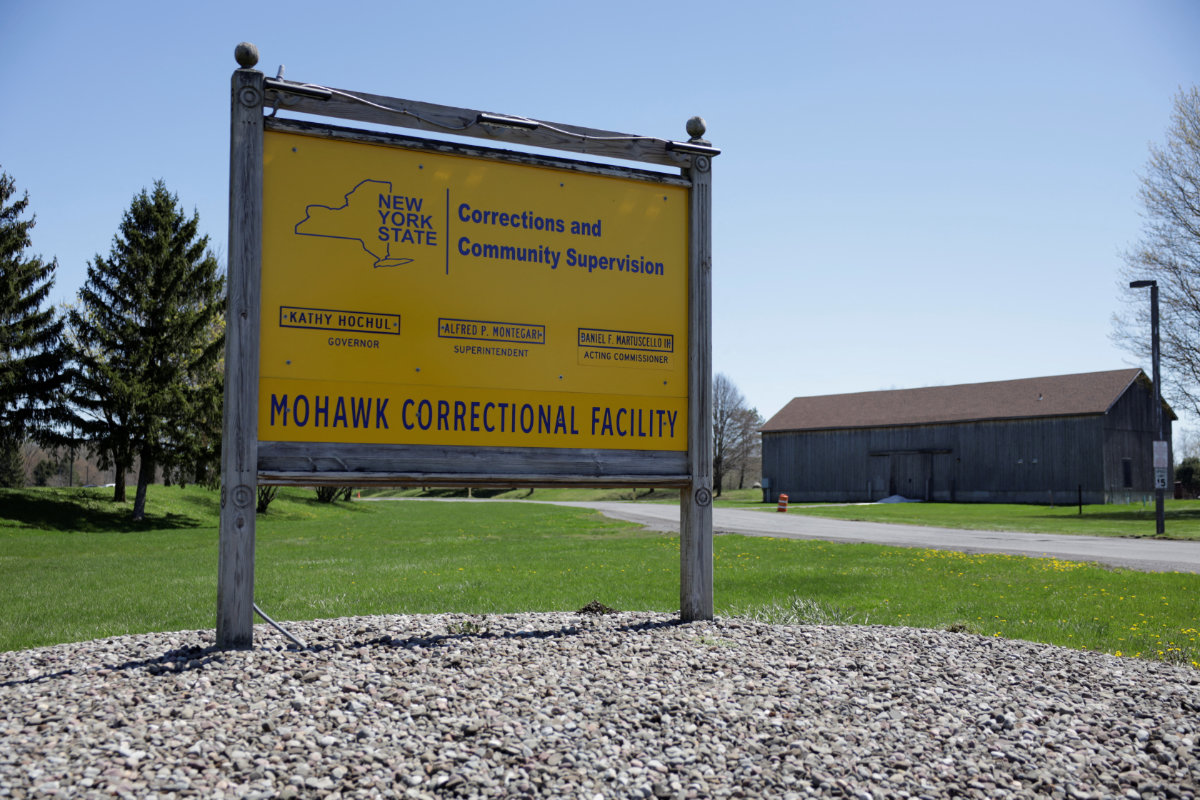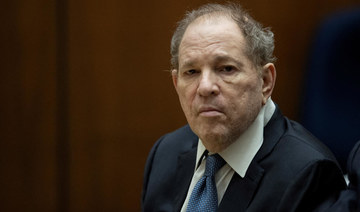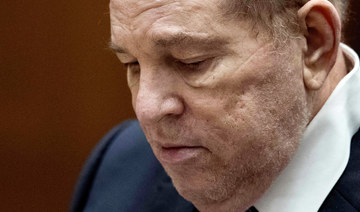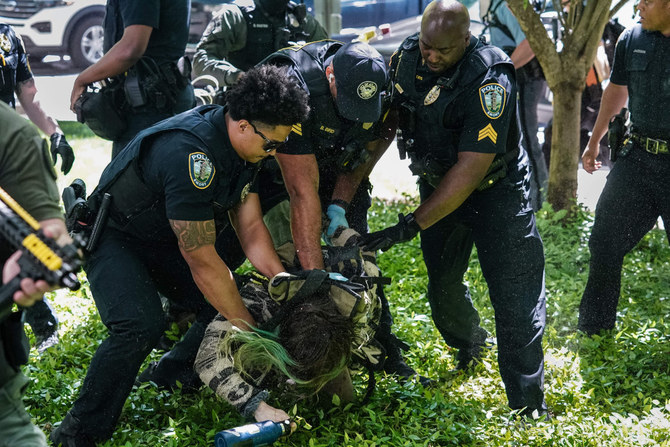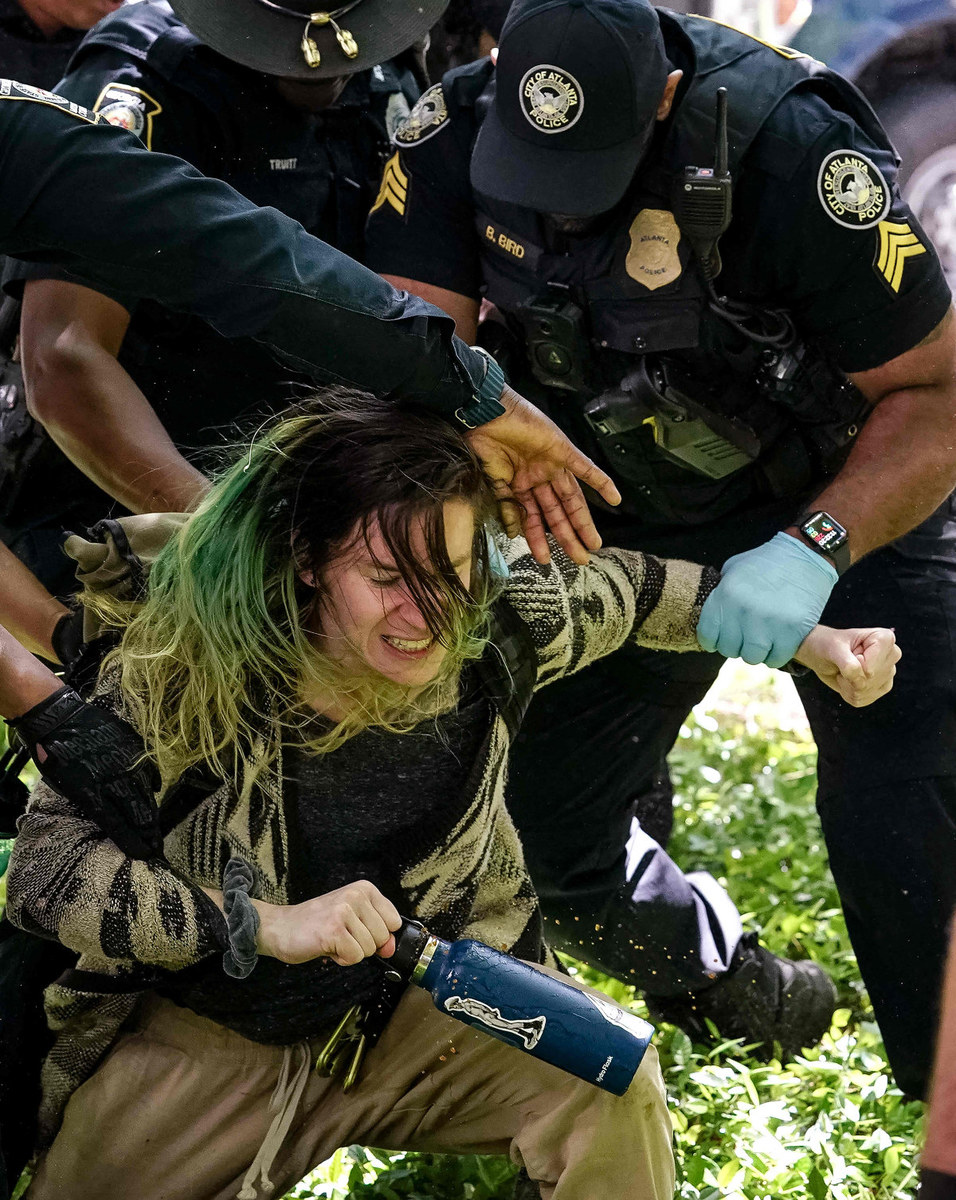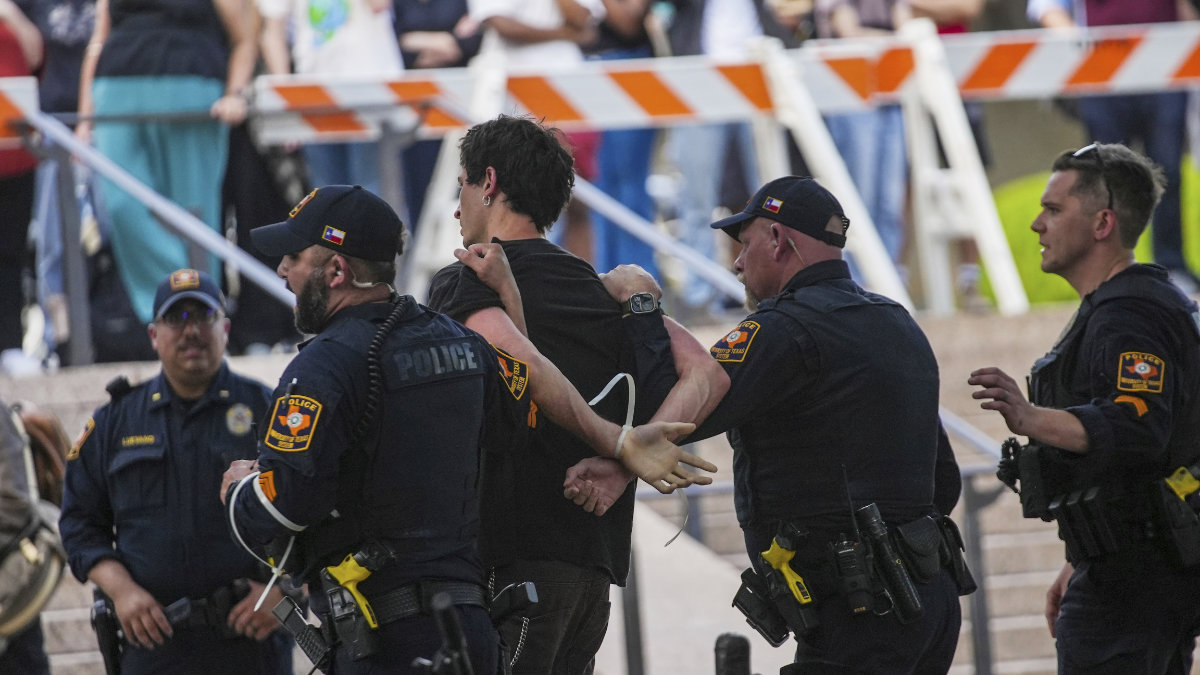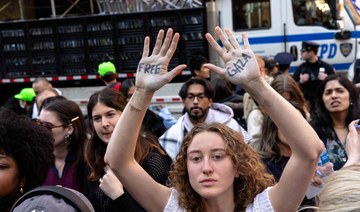KARACHI: A controversy simmers on in Pakistan since police in the southern Sindh province put the blame for a sudden outbreak of the virus that causes AIDS on a single pediatrician, accusing him in April of using contaminated syringes while treating his patients.
Positive results were found in the blood tests of hundreds of people for the human immunodeficiency virus (HIV) after a mass screening was undertaken between April 26 and June 6 in Ratodero, a small town on the outskirts of the city of Larkana.
Local doctors and health officials have questioned the police’s theory, pointing out that many of the new cases had never been handled by the pediatrician in question, Dr. Muzaffar Ghangharo.
“Over 32,000 people were screened in a population of over 300,000 and 899 had a positive result in the blood test for HIV,” said Dr. Ghulam Shabbir Imran Arbani, the first medical practitioner to report HIV cases to the media. “If a mass screening is done across the province, we are likely to discover that the situation in Ratodero is just the tip of the iceberg.”
According to estimates, Pakistan is registering about 20,000 new HIV infections annually even as, globally, the number of people newly infected with HIV, especially children, and the number of AIDS-related deaths have been declining.
The National AIDS Control Program estimates that 60,000 people carry the HIV virus in Sindh, and estimates that there are 9,500 AIDS cases. Only Punjab, Pakistan’s biggest and most populous province, has heavier HIV and AIDS caseloads.
Authorities in Pakistan realized there was an HIV outbreak in Ratodero when Dr. Arbani raised the alarm in April this year after 18 local children tested positive for the virus.
HIV, which is incurable, kills or damages the body’s immune system cells; AIDS is the name given to a number of potentially life-threatening illnesses that can happen when the immune system has been severely damaged by HIV. However, most people with HIV do not develop AIDS if they receive regular antiretroviral therapy. These medications have reduced AIDS deaths in many developed countries.
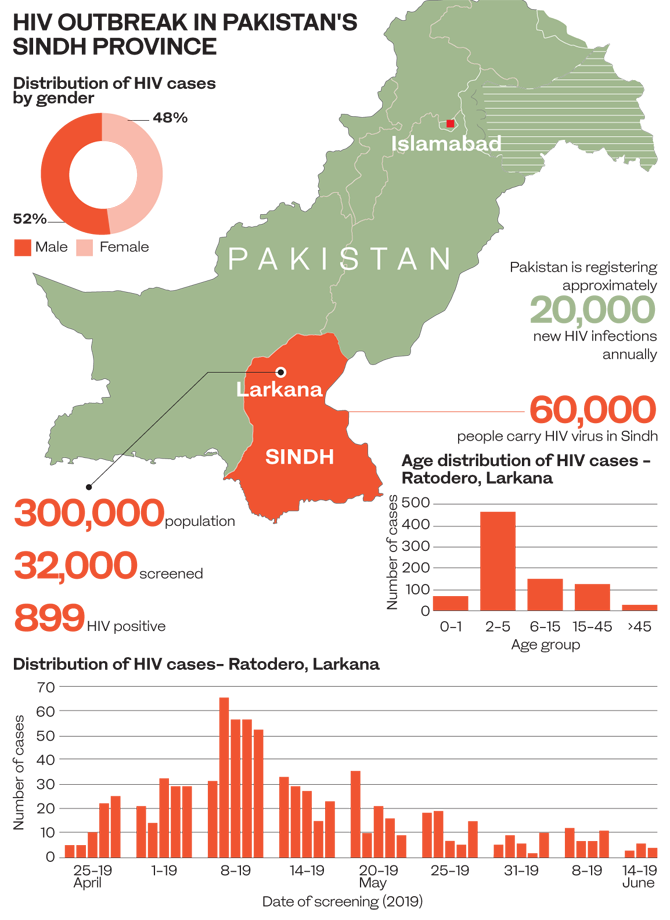
Sindh police insist Dr. Ghangharo was solely to blame for the spread of HIV and have charged him with criminal negligence.
“The joint investigation teams (JIT) has held Dr. Muzaffar Ghangharo responsible for spreading the virus by using contaminated syringes while vaccinating his patients,” Sartaj Jagirani, a local police officer in Ratodero, told Arab News.
He said he could confirm on the basis of statements made by family members up to 123 cases involving children infected by HIV after being treated by Dr. Ghangharo. “The doctor is guilty,” he said.
However, Dr Ramesh Kumar, the medical superintendent of Ratodero’s Taluka Hospital, said Dr. Ghangharo could be one of multiple sources of the HIV outbreak. “There are children with HIV infection belonging to other towns who went to other doctors for treatment,” he told Arab News.
“If a mass screening is conducted in other parts of Sindh, the results will not be different.”
According to Dr Arbani, the situation calls for extraordinary measures with “25 children and two adults having died, indicating that HIV has reached the next dangerous level of AIDS in certain cases.”
“Since medical malpractice persists across Sindh province, there should be a mass-screening program to save people from dying.”
Mass screening is usually conducted in “key HIV populations,” said Dr Safdar Kamal Pasha, who consults for WHO on HIV/AIDS in Pakistan.
WHO has cited several possible causes for the HIV outbreak.
“Preliminary results reveal that the major cause of the outbreak is the repeated use of unclean needles and syringes and unsafe blood transfusion,” said a statement issued after the conclusion of a WHO-led joint UN investigation into the outbreak.
Speaking to Arab News, Dr Pasha said: “Unsafe injection practices and poor infection control are among the most important drivers of the outbreak.” He also noted that this was not the first outbreak of HIV cases in Sindh.
The first outbreak had its roots in the practice of sharing needles by addicts to inject drugs, he said, adding that the second one mainly affected transgender people.
“The third outbreak occurred in 2016 when a patient of chronic kidney disease in Chandka hospital tested positive” in the blood test for the HIV virus, Dr Pasha said. “Later, 46 other patients who used to use the hospital for blood transfusion showed a positive result for the virus.”
In rural Sindh, public awareness of HIV and other serious infections is poor, which means very large numbers of people are ignorant about how the virus is transmitted.
There is also the stigma of HIV infection, which can cause people to act in insensitive ways even towards even family members when they get a positive result in a blood test for the virus.
In one tragic incident, a man strangled his wife on May 30 after she had a positive result in her blood test. “The husband, who himself had not undergone HIV screening, claimed his wife had an affair with a man, implying that she had contracted the virus from someone else,” Farooq Amjad, a police officer, told Arab News.
Dr Arbani said the woman’s murder reflected a social attitude that victimizes people whose blood test for HIV yields a positive result. He recalled a case where a father was unwilling to have his 16-month baby tested for the virus, arguing that it was meant only “for adults with bad moral character.”
During an awareness campaign in one village in Sindh, Dr Arbani said, he came across a woman who had been tied to a tree like an animal. “The family told us she was HIV positive and would spread the deadly virus if she was not tied properly to the tree,” he said.
WHO says its team has found widespread social stigma associated with HIV infection. This, it adds, “can be crippling for those experiencing [HIV symptoms].”
To fight misconceptions at the social, political and religious levels, a high-level UNAIDS delegation recently met Maulana Fazlur Rehman, of the Jamiat-e-Ulema-e-Islam (JUI-F) party.
Murtaza Wahab, a spokesperson for the Sindh provincial administration, said authorities swung into action as soon as the latest HIV outbreak was reported.
“The Sindh government has allocated Rs1 billion ($6.37 million) in its 2019-20 fiscal budget for an endowment fund for the welfare and well-being of HIV-affected patients,” he told Arab News.
Dr Pasha said WHO was satisfied with the response of the government to the HIV outbreak.
“These include action against unregulated blood banks, a crackdown on fake doctors and emphasis on the use of auto-destroyable syringe,” he said.
However, treatment is a different matter. Of the positive cases in Ratodero, only 43 percent are receiving anti-retroviral treatment due to insufficient stocks in the country, WHO said, adding that current stocks are enough to meet the needs of 240 children until July 15. This leaves many other children who have tested positive without treatment.






